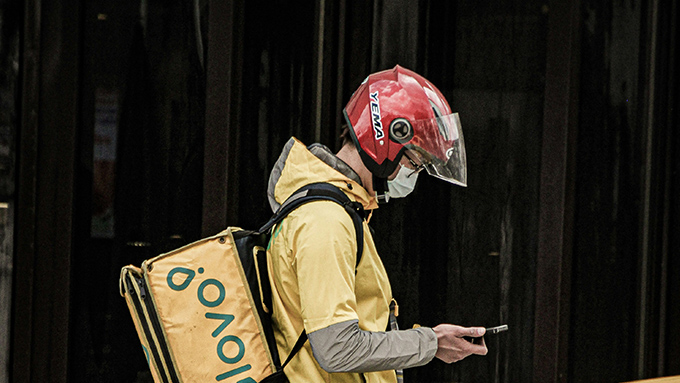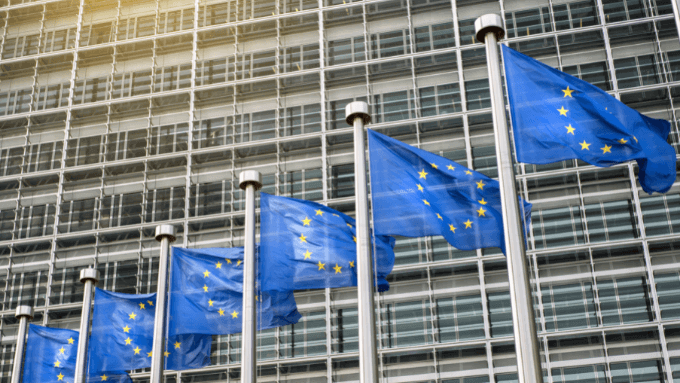Compliance Obligations with International Laws and Competition Board’s Data Access Requests
Introduction
In the Competition Board’s (“Board”) decision dated 07.11.2019 and numbered 19-38/581-247 (“Decision”),[1] it was discussed whether Siemens Healthcare Sağlık A.Ş. (“Siemens Healthcare”) hindered or complicated the on-the-spot inspection on 02.10.2019 at the Siemens premises. The on-the-spot inspection decision has been taken in accordance with the Board’s preliminary investigation decision dated 07.02.2019 and numbered 19-06/55-M (“Preliminary Investigation Decision”). The Decision is remarkable, since the Siemens Healthcare employees did not accept the case handlers’ search demand of all of the Siemens Healthcare employees based on the fact that Siemens Healthcare’s global headquarters is Siemens Healthineers AG, and that such search demand shall be positively responded to through global approval mechanisms.
Therefore, the Decision lights the way to the question as to whether the Competition Authority’s authority is restricted when the investigated undertakings has a global headquarters and, accordingly, the global security mechanisms and relevant law requirements must be followed.
Legal Framework
Article 15 of Competition Act numbered 4054 (“Competition Act”) explains “on-the-spot inspections,” in detail. Moreover, Article 16 (1) (d) of the Competition Act states that the Board shall impose administrative monetary fines on the undertakings that hinder or complicate on-the-spot inspections by five in one thousand of its gross revenue which generate by the end of the financial year preceding the decision, or which generate by the end of the financial year closest to the date of the decision if it would not be possible to calculate it.
Article 17 (1) of the Competition Act states that without prejudice to the penalties set forth in Article 16, paragraph one, the Board shall, for each day, impose on undertakings administrative fines by five in ten thousand of annual gross revenues of the relevant undertaking that was generated by the end of the financial year preceding the decision, or generated by the end of the financial year closest to the date of the decision, if it is impossible to calculate it, and which would be determined by the Board in the following cases:
- failure to comply with the obligations imposed, or commitments made, by a final decision or interim measure decision;
- preventing or complicating on-site inspection;
- failure to provide the information or documents requested within the due period with respect to the implementation of Articles 14 and 15 of the Act, pursuant to paragraph one, sub-paragraphs (a) and (c), and administrative fines may be imposed as of the date when the due period for complying with the obligations in the decisions mentioned in these sub-paragraphs has expired. The administrative fines related to the act in sub-paragraph (a) may be imposed from the day following the notice of this decision, if the decision imposing the obligation has not established a definite period, and the administrative fine related to the acts in sub-paragraph (b) may be imposed from the day following the date upon which the act in question has been realized.
What Happened
On the on-the-spot inspection day, Siemens Healthcare employees did not accept the case handlers’ search demand of all of the Siemens Healthcare employees based on the fact that the requested search method should have been directed to Siemens Healthineers AG, Siemens Healthcare’s (“Siemens Global”) global headquarters. Siemens Global has responded that such search shall be conducted via “eDiscovery” specification and, for such method, the global approval mechanisms shall be positively exhausted.
The case handlers then requested to limit their search to the employees who were resident in Turkey; therefore, international calls were made, and the global headquarters was informed regarding the on-the-spot inspection’s content and scope. The case handlers also informed the authorized employees of the undertaking that the inspection will be limited to the Siemens Healthcare users, and the case handlers may be accompanied by Siemens Healthcare employees during the eDiscovery search. However, the undertaking rejected the inspection based on the fact that the eDiscovery search shall mean the search among the employees who are resident in the European Union, and this may give rise to concerns in other fields of law. In addition, Siemens Healthcare has stated that in order for no international laws to be infringed upon, if the date and the search parameters are to be shared by the Competition Authority, the relevant data established may be prepared and submitted by itself. The case handlers have responded to the undertaking that the on-the-spot inspection procedure would not be met via the requested method, and the on-the-spot inspection minutes comprising the relevant details have been prepared.
Siemens Healthcare employees then submitted a petition dated 08.10.2019, and stated that the Competition Authority’s subject matter request was not positively responded to on the on-the-spot inspection day due to the fact that the relevant request would have infringed many safety protocols, contractual obligations, intellectual property law matters and the data protection laws applied in Europe, the United States, and the rest of the world. The undertaking, on the other hand, has explained that is researching the means through which to fulfill the Competition Authority’s request, and has submitted an access remedy that comprises the following steps: (i) The inspection will be conducted through the Microsoft Safety and Compliance Center; (ii) The access will take place on the date and time determined by the Competition Authority and a Siemens Healthcare information technology specialist will accompany; (iii) it is important to Siemens Healthcare’s legal representatives accompany the Competition Authority representatives; (iv) The Competition Authority representatives will have access to the electronic documents sent or received by both past and present Siemens Healthcare employees; however (v) Some of the documents may be encrypted and, in the event that these documents are requested from Siemens Healthcare, the provision of such data may take time; (vi) the Competition Authority representatives will be provided with additional technical information confirming that the documents have been maintained in their original formats before, after, and at the time of the inspection; and (vii) Since the inspection will be conducted in line with the aligned safety protocol and with the support of Siemens Healthcare employees, both Siemens Healthcare and the Competition Authority will be immune from allegations of any infringements of other laws, and if the Competition Authority approves the explained remedy, Siemens Healthcare is ready to initiate the access procedure immediately.
It was decided that on 15.10.2019 the inspection was to be conducted at the Siemens Healthcare premises in Ankara.
Decision and Reasoning
The remarks in the Decision are as follows:
- The on-the-spot inspection of 02.10.2019 was not productive, since the Competition Authority representatives could not use the eDiscovery method. The Siemens Healthcare’s rejection to allow access has constituted the complicating, or hindering of, on-the-spot inspection. The fact that the Competition Authority representatives were provided with additional technical information explaining that the documents have been maintained in their original formats prior to, after, and at the time of the inspection, does not alter the former determination. Thus, an on-the-spot inspection shall be conducted without prior notice, immediately, quickly, and uninterrupted by its nature.
- It may be determined from the technical data provided by Siemens Healthcare that the undertaking did not make changes to the system between the dates of 02.10.2019 and 11.10.2019, since it activated the “hold” tool. On the other hand, while the eDiscovery search that was planned to be conducted on 02.10.2019 would have provided results of the e-mails that are in the “hard delete” category, which are 30 days prior to 02.10.2019, the on-the-spot inspection on 15.10.2019 covered a more restricted period and, therefore, did not provide the same results as the 02.10.2019 on-the-spot inspection.
- On-the-spot inspections shall be conducted on the date upon which the Competition Authority finds appropriate, and with regard to the undertaking’s entire relevant business units, and upon the documents found to be relevant. Therefore, the fact that an undertaking solely offers the documents it has allowed for the inspection at the time it finds convenient, and via the method it requests, this shall not be understood as not hindering or complicating the on-the-spot inspections.
- During first on-the-spot inspection on 02.10.2019, Siemens Healthcare became aware of the search keywords used by the Competition Authority representatives. Accordingly, they identified the opportunity to conduct detailed researches through the eDiscovery method by using the identified keywords. In addition, it cannot be said that Siemens Healthcare had experienced any technical difficulties on the inspection day that may have blocked the immediate and continuous on-the-spot inspection.
Administrative Monetary Fine
The Board imposed an administrative monetary fine on Siemens Healthcare pursuant to Article 16 (1) (d) by five in one thousand of its gross revenue, since it hindered and complicated the on-the-spot inspection.
In addition, the Board also imposed an administrative monetary fine on Siemens Healthcare, pursuant to Article 17 (1) (b). Accordingly the Board determined the fined period as 12 days that commenced from 03.10.2019 (the day after first on-the-spot inspection), and ended on 15.10.2019 (the second on-the-spot inspection).
The Decision was made unanimously.
Comment
The Decision is important since it makes clear that the investigated undertakings’ access rejections based on the fact that it has a global headquarters, as well as liability of compliance to international laws (i.e. data protection law, intellectual property law), still constitutes hindering or complicating on-the-spot inspections, and is not a safe harbor.
Recent Board investigations have found that the investigated undertakings, which has a global headquarters, are much more reluctant to fully satisfy the Competition Authority’s access requests, based on the fact that the data access would consequence infringements to international laws and security protocols. On the other hand, the Decision alludes to the fact that the relevant reasoning has been tried, and did not change the Competition Authority’s assessment, regarding the understanding of Article 16 of the Competition Act.
[1] Competition Board’s Sahibinden.com decision, No. 07.11.2019 and numbered 19-38/581-247 https://www.rekabet.gov.tr/Karar?kararId=38800013-e0f0-4375-9f16-ce520b83e25c (Access Date: 20.03.2020)
All rights of this article are reserved. This article may not be used, reproduced, copied, published, distributed, or otherwise disseminated without quotation or Erdem & Erdem Law Firm's written consent. Any content created without citing the resource or Erdem & Erdem Law Firm’s written consent is regularly tracked, and legal action will be taken in case of violation.
Other Contents

Mergers and acquisitions are among the types of transactions that are subject to intensive scrutiny by competition authorities. As a rule, competition authorities only subject transactions that exceed certain turnover thresholds and result in a change of control to merger…

The U.S. District Court for the District of Columbia (“Court”) issued its memorandum opinion (Memorandum Opinion) on November 18, 2025, in the antitrust case (“Case”) between the Federal Trade Commission (“FTC”) and Meta Platforms Inc. (“Meta”). The FTC alleges that Meta monopolized the market…

No-poach agreements, which have become one of the most prominent concepts in global competition law in recent years, are defined in the Glossary of Competition Terms as “agreements, whether direct or indirect, whereby one undertaking agrees not to make job offers to, or hire, the employees of another...

The Competition Board (“Board”) has broad powers to request information from undertakings. The legal basis for this authority is provided by Article 14 of Law No. 4054 on the Protection of Competition (“Law No. 4054”). Under this provision, the Board may request any information it deems necessary from public...

Competition authorities around the world have increasingly focused on labor market infringements under competition law, issuing new regulations and guidance recently. Notable examples include the U.S. Department of Justice and Federal Trade Commission’s joint guidance, the Japanese Fair Trade Commission’s...

Chapter 8 of the General Data Protection Regulation (“GDPR”) sets out the legal remedies available to data subjects in the event of a breach of their rights under the GDPR. Accordingly, each data subject has a right to lodge a complaint with the supervisory authority of the Member State in which they reside, work...

Mergers and acquisitions play a critical role in shaping the competitive structure of the market. Although such transactions can lead to positive outcomes such as the provision of products and services at lower prices, the development of new products and technologies, and improvements in quality, they may also...

Technology and the opportunities it brings undoubtedly play a key role in strengthening the competitiveness of market players. In this context, pricing algorithms that enable undertakings to monitor publicly available prices and optimize their own pricing strategies have become widely used, especially by digital platforms...

The Regulation on Fines to Apply in Cases of Agreements, Concerted Practices and Decisions Restricting Competition, and Abuse of Dominant Position (“Former Regulation on Fines”), which entered into force upon its publication in the Official Gazette dated February 15, 2009 and numbered 27142, was...

In the past years, the Turkish Competition Board (“Board”) has closely monitored the activities of undertakings operating in the retail sector. As a result of the Board’s record of administrative fines, horizontal type of violations in the retail sector have been highly publicized. Vertical violations such as resale price...

In recent years, numerous automobile manufacturers have announced their goals to reduce carbon emissions, with many brands setting net-zero carbon targets spanning from production processes to the lifecycle of their vehicles. While ongoing debates persist regarding the significantly higher carbon footprint of...

Under Article 15 of Law No. 4054 on the Protection of Competition (“Law No. 4054”), the Competition Board (“Board”) may conduct on-site inspections at the undertakings’ premises when it deems necessary in fulfilling the duties assigned to it. During the on-site inspection, the Board is authorized to examine all...

Agreements and information exchanges between undertakings in labor markets have recently been examined in various preliminary investigations and investigations initiated by the Turkish Competition Authority (“Authority”). Following the investigations in which some undertakings were subject to...

The Turkish Competition Board’s (Board) decision regarding the acquisition of the international road transport business line of Ekol Lojistik AŞ (Ekol) by DFDS A/S (DFDS) has been one of the most prominent transactions on the competition law agenda recently...

The Competition Board (“Board”) has broad powers to request information from undertakings. The Board’s authority to request information arises from Article 14 of the Law No. 4054 on the Protection of Competition (“Law No. 4054”). Under the relevant provision, the Board may request any information it deems...

Doğuş Otomotiv Servis ve Ticaret A.Ş. (Doğuş) applied to the Turkish Competition Authority for an exemption for the practice of recommending basic wages to be applied to sales and after-sales service employees of its authorized dealers and distributors...

Access to Instagram was blocked ex officio by the Information and Communication Technologies Authority (ICTA) as of 2.08.2024. Under Article 8 of Law No. 5651 on the Regulation of Publications on the Internet and Combating Crimes Committed Through These Publications, ICTA can issue an ex officio access...

It is well known that agreements between employer undertakings with regards to their employees, such as wage-fixing and non-poaching agreements, along with competitively sensitive information exchanges have been under the scrutiny of competition authorities all over the world, including the Turkish Competition...

Automotive is one of the sectors in which the world’s most significant investments are made. The Competition Board (“Board”) has been closely interested in the automotive sector over the years and has conducted various examinations and studies in this field...

Competition authorities around the world continue unabated to investigate competition concerns arising from data collection and processing activities of digital platforms and impose severe sanctions as a result...





The startup ecosystem in Turkey has experienced notable growth in recent years. In the last quarter of 2023, 81 startups secured a combined investment of around 60 million dollars. While the number of investments remained consistent when comparing the third quarter periods of 2022-2023, there was a decrease...

Hub and Spoke cartel is a type of violation that is not clearly defined and regulated under Law No. 4054 on the Protection of Competition (“Law No. 4054”). Decisional practices of foreign competition authorities, particularly the UK Competition and Markets Authority’s decisions (“CMA”), are instructive concerning...

The Competition Board ("Board") made an addition to its line of decisions on resale price maintenance with its decision on Sunny Elektronik Sanayi ve Ticaret A.Ş. ("Sunny") . In its decision, the Board thoroughly examined the allegations regarding Sunny's involvement in maintaining resale prices and restricting...

It is observed that the Competition Authority (“Authority”) has recently scrutinized various industries such as fast-moving consumer goods, labor market, pharmaceuticals, and cement. When the reasoned decisions of the Competition Board (“Board”) published in October are examined, it can be seen that the...

Jules Verne says, “Everything on earth has a limited lifespan, nothing that will exist forever can be created by human hands”. Perhaps change is the only constant concept in all our lives. Despite two major world wars and countless periods of crisis, humanity has been undergoing a great change and...

At the meeting of the Fédération Internationale de Football Association (“FIFA”) held on 16 December 2022, the FIFA Council approved the FIFA Football Agents Regulations (“FFAR”). In the FFAR, various amendments have been made, such as the introduction of a maximum service fee limit that football agents are...

Resale Price Maintenance (RPM) is still considered a hardcore restriction under the recently revised Vertical Block Exemption Regulation (VBER), which means that it cannot benefit from a statutory exemption under Article 101(1) TFEU, unlike certain other types of vertical agreements. However, it has been debated...

In competition law, it is important to accurately determine the concept of undertaking, especially in terms of mergers and acquisitions. Therefore, the concept of economic entity aims to reveal the economic units covered by the undertakings. The relationship between the concept of economic entity and family ties comes...

In these days when the Competition Board (“Board”) frequently imposes administrative fines for preventing on-site inspections and both the Competition Authority (“Authority”) and undertakings take legal and technical measures regarding on-site inspections, a striking development has occurred. In its decision...

Online advertising has become an important source for businesses for promoting products and services and meeting consumers, as a result of the rapid development of information technologies and increase in the use of internet. Delivering targeted messages to consumers at the right time through the digital...

Selective distribution systems refer to a type of distribution system in which suppliers commit to selling the contracted goods or services directly or indirectly to distributors selected based on specified criteria, while the distributors commit not to sell the said goods or services to unauthorized...

Fast-moving consumer goods is undoubtedly one of the sectors that the Competition Authority has been working most intensively since the COVID 19 pandemic. Among the most important developments of this period was the Sector Inquiry initiated on Fast Moving Consumer Goods (“FMCG”) Retailing...

In the decision of the Constitutional Court ("Constitutional Court" or "Court") dated 09.11.2022, numbered 2020/67 E. 2022/139 K. (the "Decision"), the annulment of certain articles of the Law Amending the Law on the Protection of Competition No. 4054 ("Law No. 7246") was requested...

In Turkish competition law, certain types of mergers and acquisitions are subject to Turkish Competition Board’s (“Board”) approval in order to gain legal validity. Pursuant to Article 7 of the Law No. 4054 on the Protection of Competition (“Law No. 4054”), the Board is competent to define mergers and acquisitions...

Recently, the Competition Board (the Board) had imposed administrative fines on banks and financial institutions for failing to respond to the request for information within the scope of a preliminary investigation.[i] The request for information that lays the groundwork for the administrative fine imposed by...

Amazon, a world-famous company, is an e-commerce company that operates the world’s largest online shopping platform. In the backstage, Amazon is a data-driven company whose retail decisions are mostly driven by automated systems, fueled by the relevant market data. That being said, Amazon has a dual...

The right to make on-site inspections is one of the Competition Board’s (“Board”) most important tools for revealing whether Law No. 4054 on the Protection of Competition (“Law No. 4054”) has been violated. The effective use of this authority is quite important in terms of obtaining fruitful results from...

“Harese” is an interesting Arabic word. There is a thorn that camels love very much in the desert. The camel eats the thorn with great greed. So much so that, its mouth bleeds as it eats, but it doesn't stop eating. The taste of the thorn is mixed with the salty taste of its own blood. This mixed taste drives the camel...

Turkey’s leading pay television service provider, Krea İçerik Hizmetleri ve Prodüksiyon A.Ş. (“Digiturk”), is frequently the subject of complaints made to the Competition Authority (“Authority”). In fact, the Competition Board (“Board”) issues a new decision about Digiturk almost every year. In these decisions...

The French Competition Authority (Autorité de la Concurrence), within the scope of the competition law proceeding initiated upon the complaint of Criteo SA (“Criteo”), accepted the commitments proposed by Meta Platforms Inc., Meta Platforms Ireland Ltd., and Facebook France...

While the scope of Competition Board’s (“Board”) power to conduct on-site inspections has increased with the introduction of Guidelines on Examination of Digital Data during On-site Inspections (“Guidelines”), nowadays the amount of monetary fines imposed on undertakings continue to...

The hub and spoke cartel, which is a relatively new type of violation in terms of Turkish competition law, is defined as the indirect exchange of information between two independent undertakings which are horizontal competitors on the supplier or retailer level, through another undertaking...

The settlement mechanism has only recently been introduced to Turkish competition law practice. It entered into force with the amendment made to the Law on the Protection of Competition (“Law”) numbered 4054 on 16.06.2020, and has been in effect for less than two years. In this relatively...

Due to their increasing share in the economy and rapid growth rate, e-marketplace platforms have come under the increasing scrutiny of the Turkish Competition Authority (“Authority”) as well as many competition authorities around the world...

Pursuant to the Amendment Communiqué Concerning the Mergers and Acquisitions Requiring the Competition Board’s Approval (“Amending Communiqué”) published in the Official Gazette dated March 4th, 2022 and numbered 31768, certain amendments have been introduced...

The Competition Board (“Board”) has recently published a reasoned decision in which it evaluated BSH Ev Aletleri Sanayi ve Ticaret A.Ş.’s (“BSH”) request for negative clearance or exemption with regard to its practice of prohibiting authorized dealers from making sales through online marketplaces...

Shahmaran, a Mesopotamian myth, is believed to take place in Tarsus. According to the myth, the shah of snakes is the immortal and omniscient "Shahmaran." Shahmaran is described as a beautiful woman living in her cave with her snakes...


During the COVID-19 pandemic, competitive concerns about the pricing behavior of chain markets, manufacturers, and wholesalers engaged in the retail trade of food and cleaning supplies led to an investigation by...

When the past decisions and the recent decisions of the Competition Board (“Board”) are examined, a significant increase can be observed in the number of decisions where the Board found hindrance or obstruction of on-site inspections. This situation shows that...

The European Commission began investigating the collusive behavior of Credit Suisse, UBS, Barclays, RBS, and HSBC in the Foreign Exchange (forex) spot trading market in 2019. With the recent press release dated 02.12.2021, the Commission announced that the case is now closed...


Digitalization, in particular, necessitates the rewriting of competition law rules. Competition law is at the center all questions regarding e-commerce and digital platforms. The aforementioned platforms, which have become prominent due to innovations in...
















































